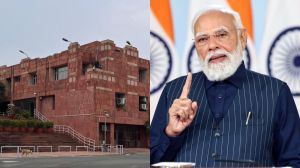Oz study says overseas students fear for safety in Melbourne
A majority of overseas students,including Indians,in Melbourne often fear for their safety,says a new study.
A majority of overseas students,including Indians,in Melbourne often fear for their safety because of risky jobs,poor transport options and lack of safe affordable housing,with many of them also attaching racial or religious element to the perceived threats,says a new study.
Of the 515 international students surveyed by the Victorian University,403 reported perceived threats to their safety and half of them felt the threats were motivated by racial,religious or cultural factors. The study found that a complex range of factors contributed to the safety threats,including lack of access to safe affordable houses,high risk employment and poor transport options. It also found offenders were often identified as groups of young alienated men.
8216;The Community Safety of International Students in Melbourne8217;,a scoping study conducted by the Victorian University following the increasing incidents of violence against international students,was commissioned between June and November last year and included an online survey of 1013 students,515 of whom were international. The study also included interviews with key stakeholders,such as Victoria Police. The study has come out with a number of recommendations,including setting up an information hotline,better access to safer transport and better information for new international students.
Victorian Premier John Brumby said he had not seen the latest survey but two similar studies,released earlier this week,had been 8220;overwhelmingly positive8221;,according to AAP. 8220;Again I would say that the educational experience that students from overseas can get here in Australia is amongst the best anywhere in the world,8221; Brumby said,adding the opening of an international student support centre two weeks ago was part of the government8217;s commitment to assist foreign students.
8220;It8217;s got five permanent staff,it8217;s open 24/7 with a phone line,it8217;s there to support students 8230; and if they are ever the victims of assault,or the victims of attack,or the victims of racial abuse they can obviously go to the police or they can get support through our international student support centre.8221; The survey found that 50 per cent or 201 students out of 403 international students who reported perceived threats to their safety believed these threats had a racial,religious or cultural dimension,compared with 17 per cent of domestic students.
Nearly half of all the international students surveyed,
49 per cent,believed international students were unsafe compared with 34 per cent domestic students and the odds of international students having this belief were 1.8 times greater than those of domestic students. The survey pointed out that both domestic and international students said they had adjusted their behaviour in response to perceived risks.
These behaviours include self-imposed limitations on travel and night-time activities,with around 53 per cent of international students surveyed saying they do not travel at night as a measure to protect themselves. Moreover,public statements minimising or appearing to deny the role of racism have heightened tensions as reflected in student protests and in international and local ethnic community media coverage expressing concern about the safety of international students in Australia,the study said.
A number of international students interviewed reported being unsupported by bystanders when they were being attacked. Such reports reinforce the notion that Melbourne is an uncaring place. Furthermore,both students and stakeholders suggest that there is a need to name and identify racism in all of its manifestations,according to the study. This means acknowledging that racism exists and is at least one element of safety concerns.
There is also an ethical imperative to do this,given that international students have been encouraged by government and the education and training sectors to come to study in Australia and that their contribution to the Australian economy,particularly in Victoria,is so significant,the study said. It suggested that the Federal and Victorian governments need to position themselves as advocates for the elimination of racism.
- 01
- 02
- 03
- 04
- 05































